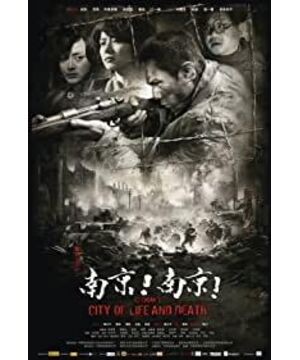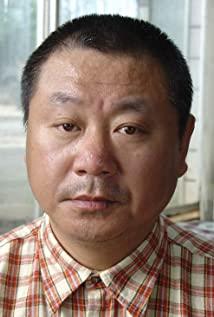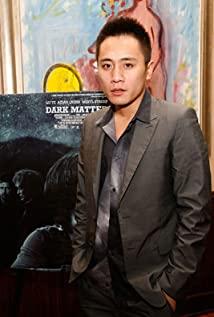What's great is that Lu Chuan tries to open up a new perspective on the history of the Holocaust - how did the perpetrators go to the bloodthirsty crimes against humanity? How did the aggressors in war get out of control and annihilate humanity? For these questions, some people have given insufficient answers from the psychological level or even the philosophical level, and few people try to answer (or just express) from the film narrative level.
This kind of attempt means that the focus of the filming must be placed on the side of the invaders, describing how ordinary soldiers went from timid to crazy, from being killed by their comrades and being blocked from attacking to the release of revengeful pleasure. This kind of process of turning a man into a devil does not even exist in "Schindler's List". The Nazi officer played by Ralph Fiennes is more like a natural pervert, relaxing his waist with a gun and hitting a few times from time to time a target.
And this kind of attempt means a great risk to the audience of the victimized country, because in this way, you have to temporarily restore the mortal enemies (ghosts, dog days) back to each specific one. A person with blood vessels to breathe. Spielberg won't do it, Atom Igyan won't do it ("Alara Mountain" about the extermination of Armenians in Turkey), and of course Lu Chuan can't do it.
But he still wanted to try, so he took the risk of giving the invader Kadokawa a human image, including the fear of committing suicide after his inner struggle. But we know that the psychological change from human to demon requires a series of events that create anxiety and contradictions, and there is a hidden danger of "beautification". In the face of the island nation's disobedience, and in the face of the aggression veterans other than Dong Shilang who "reminisced" about the massacre in front of the documentary (documentary "Nanjing"), you can say that these soldiers are actually helpless and good people! ?
Therefore, Kadokawa was in "Nanjing! Nanjing! ", he became a solitary monster. It is impossible for us to see the logical cause of his heterogeneous behavior, and it is even more impossible to see the logic of emotional changes of the Japanese army who slaughtered the city. Only shortly after the start of the movie, I saw a Japanese army search team was ambushed and suffered heavy losses.
"You really go to the battlefield. After seeing three or four brothers dead, all your worldviews have changed, especially when you conquer a highland or a city, you are facing an object that must be avenged, and you will never take revenge. Treat him as someone you know or can communicate with online, you have no feelings for him, only revenge, pleasure, spiritual and physical indulgence in your heart, because tomorrow you may fall into chaos like your brother In the corpse pile, the face was smashed to pieces." Lu Chuan also clearly expressed his interest in the logic of this behavior in the interview.
Since this kind of logic is difficult to express and cannot be expressed, it has to be diluted in the narrative, thus causing the film to be out of focus and scattered to a certain extent. Outside of the Japanese army, the resistance army, secretary Rabe, female teachers in the safe area, and brave prostitutes were almost all assigned the same weight (length and intensity of shots). This equal distribution makes the death of these characters come earlier than their due emotional accumulation time, and the sensational effect has not been realized (of course, this emotional accumulation time varies from person to person, emotional people are naturally sensitive, and people on the screen are different Crying can also be infected immediately), not to mention that the massacre-themed movies should not be used as a means of sensationalism, but should give the audience a sense of heaviness and depression, making people thirsty and uncomfortable to watch.
And this fresh perspective of expressing the mentality of the aggressor, Lu Chuan successfully expressed his ambition through a non-narrative level, that is, the heroic and absurd ritual power. This is fully reflected in the victory celebration of the Japanese army in Nanjing at the end of the film. The sound played a huge role in this celebration. The strong and rhythmic Japanese drums and the thoroughly purified and filtered ambient sound effects made this Shinto ritual create a kind of photographic The terrifying power of the human heart, this may be the most powerful hypnotic drug for the person involved, the aggressor, and the sense of honor and sacrifice that has been generated and amplified in the heart may be one of the reasons why the Japanese army has become a monster.
Of course, the bewitchment of Shinto is only one of the causes of the massacre. The more factor must be the events that caused the military discipline and personal morality to get out of control. These logics that are indulged in history but have always driven mankind to madness are very important to "Nanjing! Nanjing! ”, even the medium of film, is a problem.
View more about City of Life and Death reviews











